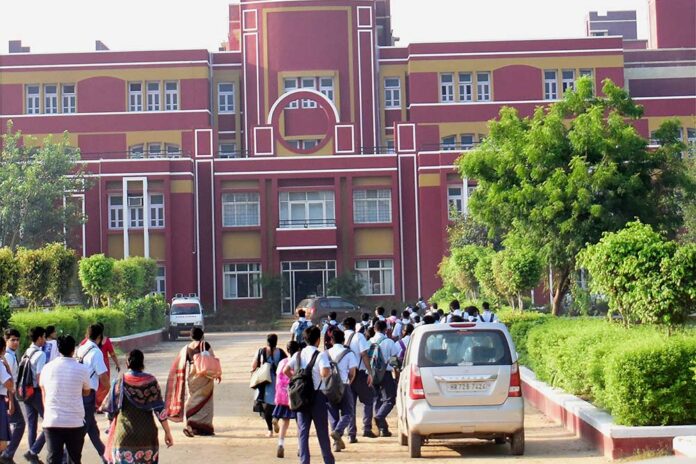– Mr.RCM Reddy, MD and CEO, Schoolnet India & Miss. Devika Rae Chandra, Assistant Manager – Office of Strategy, Schoolnet India
Affordable Private Schools (APSs) have been spearheading the path to making quality education more accessible to all. But the pandemic-induced discontinuity in learning has disproportionately affected them, posing significant risks for at least 80 million learners, mostly belonging to families at the middle and bottom of the economic pyramid (MBoP). Already suffering from a lack of policy and academic support, APSs are now facing financial and infrastructural constraints too. In the last two years, revenues plummeted, student enrolment fell, and students suffered learning losses due to low adoption of EdTech for remote learning. APSs require structural reforms in five key areas: academic, technology, processes, regulatory, and financial.
Compared to government schools, private schools often perform better on test scores, prompting parents to opt for APSs for their child’s education. However, several studies by researchers in the field have shown that after considering student background, the gap narrows. Further, grade-specific competencies are far from achieved at APSs. According to a report by Central Square Foundation and Omidyar Network, two problems plague APSs’ academic performance: a lack of focus on learning outcomes in regulatory policies and the paucity of information for parents, who are forced to rely on proxies such as infrastructure and reputation. The Right to Education Act, 2009 (RTE) does not differentiate between elite and low-cost private schools, mandating APSs to strive to follow infrastructural norms designed for large spaces like playgrounds and one-classroom-per-teacher. These become the focus of school leaders rather than improvement in learning outcomes. In the last two years, schools had to transition to the virtual or blended modes of teaching-learning without any academic support, adding to their woes.
In a recent survey, school leaders expressed the need for better resources and tools to conduct remote learning and improve academic performance. The RTE, National Education Policy (NEP) 2020, and other policies must cater to parents’ demands of enhancing learning outcomes as the focus of APSs. With it, tech-enabled academic support is a must. Teachers need training in digital pedagogy, with access to a repository of digital and carefully curated content, global multimedia and multisensory resources, and AI-led systems to track students’ progress.
Research on the classroom interaction process in APSs is erratic. Anecdotal evidence, however, shows what wonders a little support can do. A principal in Aurangabad told us, “Over the past two years, we had tremendous digital support that served as an aid for our teachers and students throughout the lockdown, keeping our teaching and learning process unhampered. When a trained teacher stands in front of the students, she creates a positive impression in the mind of students, who prepare themselves to accept the knowledge provided. Whereas an untrained teacher may not be able to grab the student attention in this tech-savvy world.”
ALso Read: Norton surveyed admit that it is important that parents teach their children about Cyber Safety
APSs charge fees ranging between INR 500 and 4,000 per month (across Tier I-IV cities and towns), striving to bring quality education and affordability under one roof. After rampant unemployment due to COVID-19, this has become an increasingly insurmountable challenge for many parents. Coupled with delayed RTE reimbursements from the government has resulted in empty coffers to distribute teacher and staff salaries and afford daily expenses to keep the school functioning. The financial burden has proven to be debilitating, forcing several schools to stop operations. The pandemic has further prompted the reverse migration of students from private to government schools, as shown in Pratham’s ASER 2020 Wave 1 report, causing a greater burden than what the public system can bear.
In these crucial times of a global health crisis, when the modes of teaching-learning are in constant limbo, APSs must be given holistic support to continue teaching-learning, whether – offline, online, or blended. Furthermore, their learning outcomes must be regularly captured and disseminated to parents for better decision-making and accountability, entry-exit barriers should be relaxed, and financial support increased to allow their recovery. Regulatory policies like the RTE and NEP require distinct sections for APSs and other elite private schools in India. The sheer scale and distribution of affordable private schools warrants their revival, without which achieving Sustainable Development Goal 4, i.e., ensuring equitable access to quality education, would be an incomplete effort. Their recovery and revival will lend learning continuity for millions, bringing about the union of quality, affordability, and modernity with the aid of technology.
Visit EasyShiksha for skill development.


































































